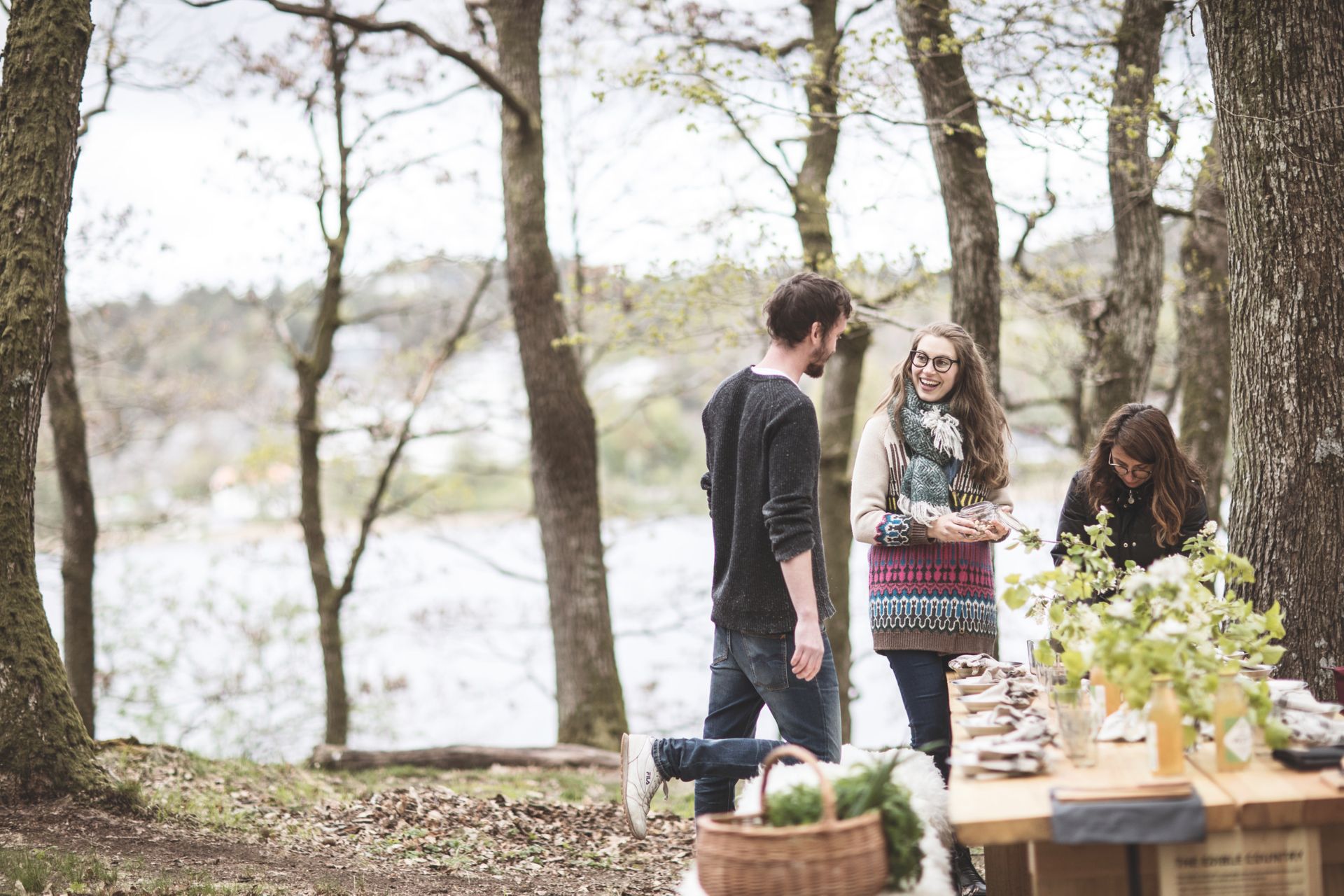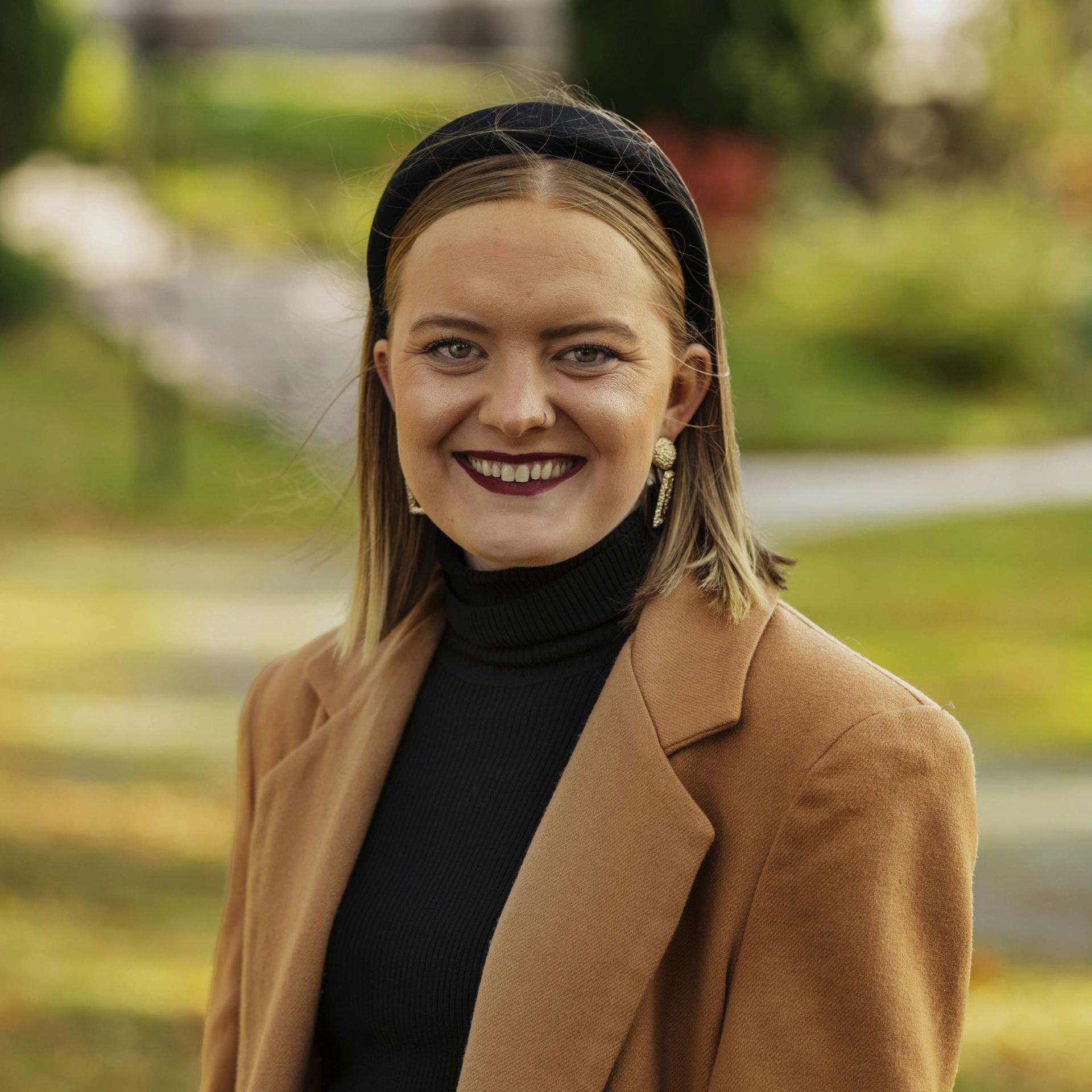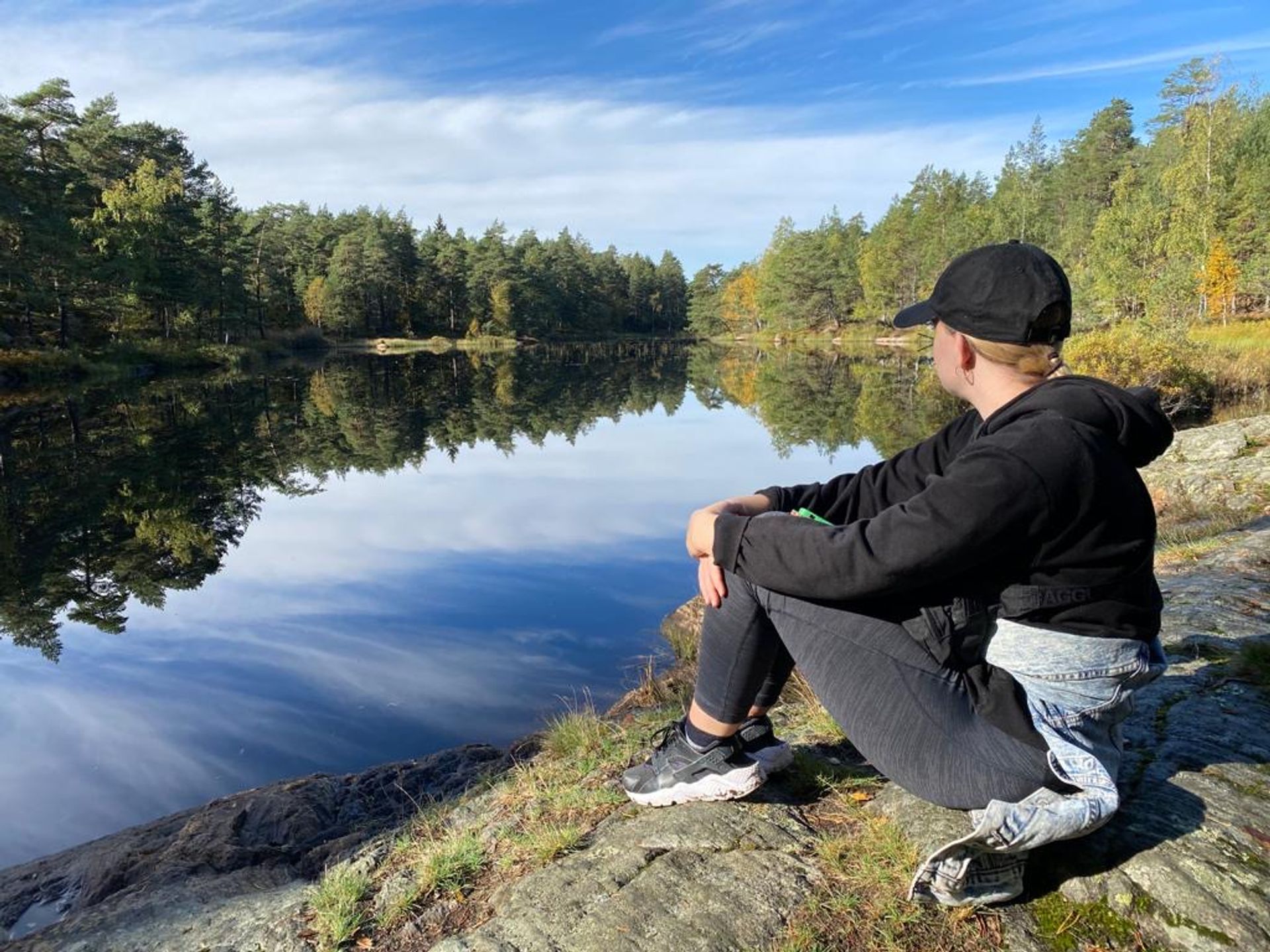
Written by Brooke
31 Jan 2022
With the new year in full swing, many people are making their new years resolutions and figuring out how to be better and improve. As the months go on many people abandon their resolutions and go back to their old ways? So how do we actually change and maintain good mental health? To find this out, I interviewed Marie Pettersson, a counselor at the student health care center at Linköping University. We talked about how students can reach out if they need it, how to prioritize one’s mental health, and her advice to students who are struggling.
Brooke: Introduce yourself, who you are, what you do, and where you work?
Marie: My name is Marie Petersson and I am working as a counselor at the student health care at LiU. Being a counselor means that my main job is to have individual counseling sessions with students about their health, mental health and maybe about their studies. Whatever is affecting them.
Brooke: In general how can students reach out for help if they need it?
Marie: In general, I think most universities in Sweden have student health care centers so that is basically the first step. You can reach out to the student health care centers, and they don’t charge you anything. Specifically, at LiU you can come to counseling sessions that you can book. Every day you can call the student health care center between 1 and 2pm if you have questions so we can then guide students to the right place. I think most of the universities have this kind of service.
Otherwise, it’s the Swedish healthcare system. 1177 is a national phone line where you can phone to ask. Depending on where you live, we have vårdcentralens which is the local place where you can meet a doctor, nurses, or counselors, psychologists maybe.

Brooke: If you have a friend who is struggling and is hesitant to reach out for help, how can you help them to seek assistance?
Marie: If you’re a friend, the best way is to supportive and motivate them to seek help. If you feel that your friend is hesitant you can also make an ask if they want help to contact somebody. In that case you can help look up a phone number. You can say “I looked up the phone number to the student health care and you can phone everyday between 1 and 2.”
Try and make things easier for this person. I know a lot of people that are a bit hesitant. It will be easier when they do have the support, people trying to motivate them, making it easy for them to take the contact.
Brooke: How can students prioritize their mental health with everything going on whether its studies or life?
Marie: We need to start with the basics like making sure you get enough sleep. Most people need 7-9 hours so make sure you get enough sleep. Also make sure you eat healthy and regularly. Especially in Sweden half the year its dark out and everybody needs the sunlight or daylight. It helps us to sleep better! And going out to exercise such as a walk during the daylight is a basic thing but important to have good mental health.

Brooke: What are the typical problems that students seek help for?
Marie: Stress is the most common. It could be that they are stressed because they want good grades, a lot of things in the studies, the exams, it could be stress focusing on the studying part. It could also be stress about all the possibilities there are as a student that you want to have good grades but also go to parties with people, social events. There is a lot of fun things going on so this fear of missing out sometimes that you want to be everywhere. It can be too much so that is also a part of it. You can also get stressed because you are failing studies or maybe you are having a low self-esteem.
You start to get feelings of being down, having a low mood, thinking that things are not fun, a bit of a depression. For International students you leave your country, your family, and you move away from home so, there are a lot of changes in your life. When we have big changes in our life sometimes we get more stressed and anxious.
The other problems students come to us with are worries about the future and thoughts of ‘will I manage this?’, ‘get a job?’ and ‘how can I find friends?’, ‘how can I find my group of social people?’ I think students think their problems have to do with the studies but basically everything we do in life can affect the way we study, and things happen in our lives in so many ways, so it doesn’t have to be about studies at all.
Brooke: What are the warning signs that you or someone you know should seek help?
Marie: When you start having feelings of stress or feelings of anxiousness or when you start to recognize that it affects your life in ways. For example, if you can’t sleep during the nights, can’t concentrate, or it becomes very difficult to focus on your studies. Maybe you feel you start to withdraw from your friends, social events because you feel low. If you generally feel you’re too much worrying about things in life and it takes too much energy, then it could be a warning sign.
If it starts affecting your studies, it also is one of the signs that you need to seek help. Very often we are not aware of this, we are just so in our heads thinking about all those thoughts we have. If we recognize these thoughts and think this might not be very fruitful for me, you can seek help. It’s better to seek help early than just dragging on how you’re feeling. Some students just need a couple of sessions to talk about their situation and to ease up and find life easier and find solutions.
Brooke: Tips for creating a balance between mental health and studies?
Marie: Very often we talk about the 8-hour rule – 8-hour workday, 8 hour sleep, having 8 hours to do other things. So that makes it 24 hours and that is all there is! 8, 8, 8, it’s easy to remember. We need the 8-hour sleeps, we need to put 8 hours into our studies to manage, then there is 8 hours to put into cooking, cleaning, hanging with friends, and exercise. I know there will be times before exams where you feel you need to put more than 8 hours into your studies but doing that for a long time will probably fail your mental health.
When you start to think that you don’t even have time to go out for a walk then it’s the time when you probably need it the most to maintain a good health. So even if we feel that we don’t have time still exercise or meet your friends, but you can make it shorter. We need this balance to maintain good health. Sometimes we need to physically put it in our calendar, not just the studies but the bike ride, or the walk into our calendars so we do it.

Brooke: How do you not let your worth be consumed by grades or academic success?
Marie: It’s hard because that’s sometimes the way you feel about things but it’s also important to separate that this doesn’t make us a bad person if we don’t get the grades we want. We need to separate this, but this is hard. It’s a lot of how we think about ourselves so with students who get into these thoughts, we must work with their values. We work a lot with self-compassion and that is about treating yourself as you would a best friend when you get down.
This very often means that when a friend is suffering then we are very supportive but to ourselves we are very often so hard on ourselves. In those moments maybe also work with self-compassion and separation of thoughts.
Brooke: What are effective coping strategies against stress and anxiety?
Marie: Having good routines is very good such as waking up at the same time, eating at the same time, getting your sleep, doing your exercise is very important. Doing exercise like going out for a run is something that is increasing your heartbeat and is a really good tool to cope with anxiety and stress. Stress and anxiety get into the body so doing this tough exercise for 20 minutes will let a lot of hormones out of our bodies which is a very good thing.
Also, deep breathing is very important and it’s good to be aware ‘I am going to take a couple of deep breaths’ and if we do that when we feel stressed in our bodies or in our mind and we sit down for maybe half a minute, take a couple of deep breaths we can feel the stress in our body leave. It is because when we are stressed and when we are anxious, we get our breathing around the throat, and we need to get the oxygen down in our lungs and out in our blood system.
Just reminding ourselves a couple of times every day ‘ok, I’m going to breathe’ then we can be aware of how stressed we are because we feel it in the body. I think mindfulness training is a great tool also because mindfulness teaches us to be aware of what is happening within ourselves and around us. Mindfulness training is a great tool. At Linköping University, we have mindfulness workshops for students and workshops on stress and anxiety and about motivation.
Brooke: What does poor mental health or mental health problems look like?
Marie: It’s important to remember that poor mental health is not seen from the outside so there is a lot of people having a poor mental health and you would never know. It’s more about what is happening inside of us. It looks like having anxious feelings, maybe low mood and depression, stress, low self-esteem.
Brooke: Why does good mental health even matter?
Marie: A good mental health is a very good foundation for successful studies. When we have a good mental health, we are confident, can see ourselves following a good path, and we can feel happy and content. Bad mental health is putting big obstacles in front of us with things we need to do or want to do.
Brooke: What are some free or cost-effective ways to improve your mental health?
Marie: Things that you can do for yourself like exercise, and you don’t even have to go to a gym. You can simply go out in the nature, take a hike, bring some fika. This brings positive effects in our lives. Going out in the nature I would highly recommend as like a therapy, basically. Also, doing mindfulness because that is about being aware of the things, we have around us and learn ourselves to appreciate that.
The other important thing is to spend time with people you like, with people you can be yourself with. Reflect on what you like to do and learn to say no to things you are not keen on. Sometimes we can hear students that are hanging out with friends, there is a lot of partying and alcohol and maybe that’s not what they want to do but they don’t see any other alternative. So, reflect on what makes you happy – is it being outside in nature or hobbies or interests you have. Do something of that.
Brooke: How can we promote wellbeing and tackle the causes of mental health problems?
Marie: I think its important that we can talk openly about when we are not feeling great, when we are feeling a bit down or life isn’t how we think it should be. So, if we can talk about things like that without getting judged by people so we don’t have to feel feelings of guilt or shame

Brooke: What is one thing you wish others knew about mental health?
Marie: I wish that people knew that mental health is not a huge thing, it’s about how we as people react in life. Every human being is feeling ups and downs in their mental health in their lives so it’s not that you must be sick, mental health is just about coping with stress, anxiousness, and worries.
These are things that belong to human beings. It’s also easy to get help and sometimes it helps with just a couple of sessions and then you might feel better. For a lot of people, it’s just talking about your situation, what you feel and what you think which talking about can make you feel more relaxed and more comfortable.
Brooke: Finally, what professional advice would you give students who are struggling?
Marie: I want everyone to know that they are not alone. This is something so many of us are dealing with. Don’t hesitate to seek help and do it early. If you think the thought ‘maybe I should talk to someone’ then do it.



